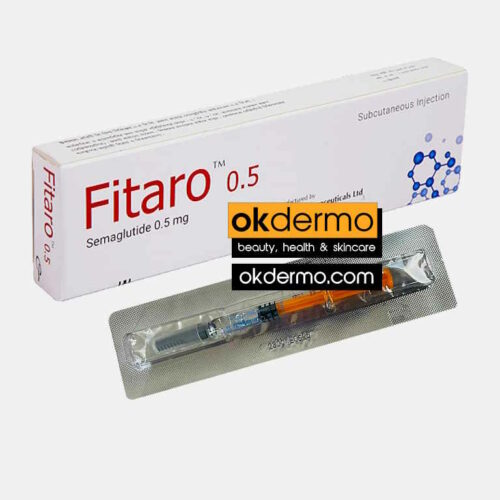Losing Weight After Menopause: Strategies for a Healthy & Sustainable Approach
Table of Contents
Menopause is a natural part of a woman’s life that marks the end of her reproductive years. One of the most common postmenopause symptoms is weight gain. The hormonal shifts and changes that menopause brings can cause slowed metabolism and challenging weight management in women.
It’s not impossible to lose weight after menopause. Moreover, it’s not impossible to keep it off.
The right strategies can help women experiencing menopause achieve their weight loss goals and maintain a sustainable healthy lifestyle. Let’s look at different strategies for losing weight after menopause while prioritizing overall health and well-being.
Weight Gain After Menopause
Before discussing different menopausal weight loss strategies, it’s important to know why women gain weight during this time.
As estrogen levels decrease, metabolism tends to slow down.2 This increases the likelihood of weight gain, particularly around the abdominal area. Muscle mass also tends to decrease, further contributing to a sluggish metabolism.
The body also uses fat cells differently during menopause.1 Stress during menopause can also lead to emotional eating and cravings, adding extra calories and contributing to weight gain.
These changes may make you think that weight loss is out of reach. However, that’s not always the case. It just means you have to approach weight loss with a more mindful and tailored approach.
-

Rybelsus® Semaglutide Tablets
Semaglutide 3mg / 7mg / 14mg
Size: 30 Tablets
Brand name: Rybelsus, Ozempic, Wegovy
From USD $345.00 Select options -

Fitaro® Semaglutide Subcutaneous Injection
Semaglutide 0.25mg / 0.50mg / 1mg / 1.7mg / 2.4mg
Size: 1 Pre-Filled Injection Syringe
Brand name: Ozempic, Wegovy
From USD $141.00 Select options -

Jardiance® Empagliflozin Tablets
Empagliflozin 5mg / 10mg / 12.5mg / 25mg + Metformin 500mg / 1000mg
Size: 30 Tablets
Brand name: Jardiance
From USD $166.00 Select options
Weight Loss Strategies for Menopause
While losing weight after menopause may seem challenging, it’s not impossible. Here are some healthy and sustainable weight loss strategies to follow:
Prioritize Balanced Nutrition
Your nutrition is one of the main contributing factors to your weight. Balanced and nutrient-rich diet diets are crucial for weight loss success after menopause.3 Focus on the following whole foods:
- Fruits
- Vegetables
- Lean proteins
- Whole grains
- Healthy fats
Opting for these whole foods can help maintain and build muscle mass. They’re essential if you want to lose weight healthily.
Mindful Eating
Practice mindful eating to foster a healthier relationship with food.4 Pay attention to hunger and fullness cues while eating. Eat slowly and savor each bite. Avoid distractions like screens while eating, as they can lead to overeating. Mindful eating not only aids in weight management but also enhances the enjoyment of meals.
Stay Hydrated
Drinking adequate water is often underestimated in weight loss journeys. Staying hydrated supports metabolism and can help control appetite.5 Replace sugary beverages like soda or sweet juice with water or herbal teas. This will help you cut down on unnecessary calories and added sugars.
Strength Training and Physical Activity
Incorporating regular physical activity into your everyday routine can help you lose weight after menopause.6 Make sure to include a mix of cardiovascular exercises and strength training. Cardiovascular exercises can help promote good heart and lung health, while strength training helps preserve and build muscle mass.
Get Enough Sleep
Getting enough good sleep is really important for staying healthy and managing weight.7 Not sleeping well can mess up the hormones that control hunger, making you gain weight. Aim to get 7 to 9 hours of quality sleep each night and avoid excessive screen time and caffeine before going to bed.
Manage Stress
Not managing your stress properly can lead to weight gain, especially after menopause. Chronic stress can lead to overeating and other hormonal imbalances.8 So even if you’re working out regularly, there’s a chance that you won’t lose stubborn fat.
To manage stress after menopause, incorporate different stress-reduction techniques in your life. This includes yoga, meditation, deep breathing, or spending time in nature. Find healthy ways to cope with stress, and it will significantly impact your weight loss journey.
Portion Control
Portion control is another way to lose weight during menopause. Be mindful of portion sizes to avoid overeating. Use smaller plates, bowls, and utensils to help regulate portions visually. Listen to your body’s hunger and fullness signals, and avoid eating out of boredom or emotional triggers.
Set Realistic Goals
Set achievable and realistic weight loss goals. Weight loss doesn’t happen in a blink of an eye. Aim for a gradual weight loss of about 1-2 pounds per week rather than trying to lose 5 pounds in one go.
Slow approaches to weight loss are more sustainable.9 You’re less likely to lead to muscle loss or nutrient deficiencies.
Stay Consistent
Consistency is key to successful weight loss. Focus on making healthy choices consistently rather than resorting to extreme diets or drastic measures. Sticking to small and sustainable changes over time can lead to significant results.
Seek Professional Guidance
If you find it challenging to lose weight after menopause, you can turn to healthcare experts for support, such as registered dieticians or fitness trainers. They can offer personalized advice about your diet and exercise to match your health and fitness goals.
The Bottom Line
Losing weight after menopause is challenging, it’s not impossible. Various strategies and approaches can help you healthily and sustainably lose weight and keep it off. Following some of the suggestions in this article can help you successfully reach your goals.
Sources:
- National Institute on Aging. “What Is Menopause?” National Institutes of Health, U.S. Department of Health and Human Services, 12 Mar. 2021.
- HealthPartners. “Menopause and Weight Gain: What You Need to Know.” HealthPartners Blog, HealthPartners.
- Harvard T.H. Chan School of Public Health. “Best Diet: Quality Counts.” The Nutrition Source, Harvard T.H. Chan School of Public Health.
- Harvard T.H. Chan School of Public Health. “Mindful Eating.” The Nutrition Source, Harvard T.H. Chan School of Public Health.
- The Hub – Johns Hopkins University. “Focus on Wellness: Drinking More Water to Improve Your Life.” Johns Hopkins University, 15 Jan. 2020.
- Sternfeld B, Dugan S. “Physical activity and health during the menopausal transition.” Obstet Gynecol Clin North Am. 2011 Sep;38(3):537-66. doi: 10.1016/j.ogc.2011.05.008. PMID: 21961719; PMCID: PMC3270074.
- Papatriantafyllou E, Efthymiou D, Zoumbaneas E, Popescu CA, Vassilopoulou E. “Sleep Deprivation: Effects on Weight Loss and Weight Loss Maintenance.” Nutrients. 2022 Apr 8;14(8):1549. doi: 10.3390/nu14081549. PMID: 35458110; PMCID: PMC9031614.
- Yau YH, Potenza MN. “Stress and eating behaviors.” Minerva Endocrinol. 2013 Sep;38(3):255-67. PMID: 24126546; PMCID: PMC4214609.
- The Economic Times. “Why Slow, Steady Is the Best Way When It Comes to Shedding Those Extra Pounds.” The Economic Times, 13 Mar. 2021,
Post by:
Marcella Jiovanni
Skin Care Professional
“Marcella Jiovanni actively promotes the importance of maintaining healthy skin, she envisions the future of dermatology as moving away from pure medical, pharmacological dermatology and flowing more toward a holistic approach to wellness and skincare.”

















